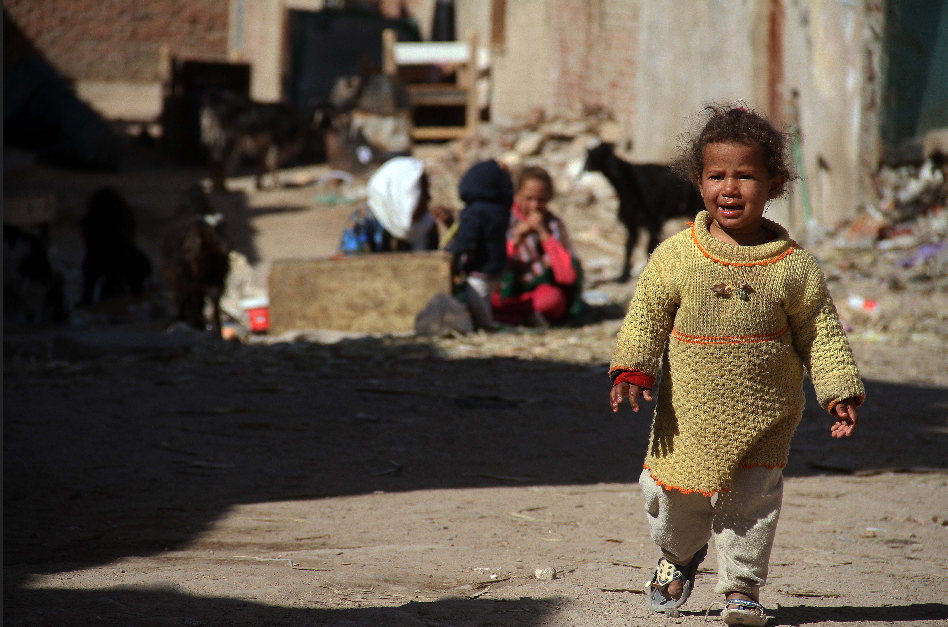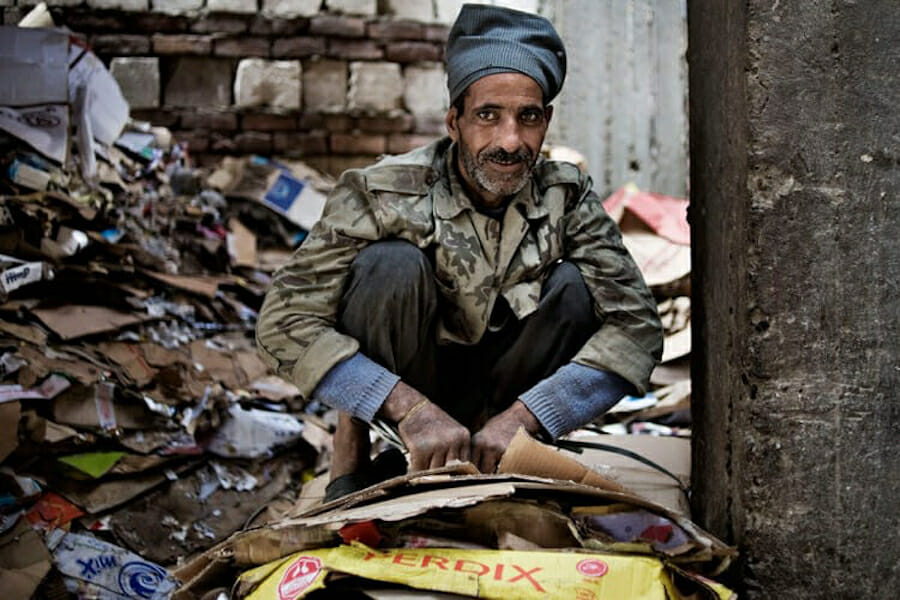Why Is Egypt Statistics Agency CAPMAS Withholding Poverty Data?

“Since its establishment, CAPMAS has been under the control of generals and security forces.”
Egypt has been grappling with one of the most severe economic crises in its modern history for years. The middle class has been eroding, giving way to the poorer classes, while inflation rates have surged, and the state has been burdened with debt and loans.
In this dire situation, the Egyptian Central Agency for Public Mobilization and Statistics (CAPMAS) has chosen to publish certain data while concealing others.

‘Security Order’
CAPMAS is Egypt's main governmental body responsible for collecting and analyzing data and statistics. Established during the presidency of Gamal Abdel Nasser in 1964, its aim was to provide accurate and comprehensive data to support decision-making in both government and the private sector. Since its inception, the agency has consistently been under military governance and security control.
Looking at its previous leaders, all have been military figures, starting with Major General Jamal el-Din Mahmoud Askar, followed by Generals Mokhtar Awad, Farouk Said Abdel Azim, Ihab Alawi, and Abou Bakr el-Gendy.
The current head is Major General Khairat Barakat, who has been in office since February 2018. He previously served as an advisor to the president, director of military officer affairs, and head of military records management.
In terms of the information it provides, the agency revealed on October 10, 2024, that the total deposits in current accounts held by Egyptians reached 249.5 billion Egyptian pounds in the 2023-24 fiscal year, a 51% increase from the previous year. The day before, it announced that the total pensions disbursed by government post offices in 2024 amounted to 179.5 billion pounds, up from 140.5 billion pounds in 2023, reflecting a 27.8% increase.
The agency also publishes statistics on marriage and divorce rates, birth and death rates, and population growth.
However, the most pressing question that has remained hidden in the agency's data for years is: What is the percentage of poverty and the number of poor people in Egypt?

Poverty Rate
The last officially announced poverty rate in Egypt, according to the CAPMAS, was released in December 2020—approximately four years ago—and was estimated at 29.7% of the total population.
Meanwhile, the World Bank reported a rise in the poverty rate to 32.5% by the end of 2022, according to its most recent survey. This discrepancy has raised questions about why CAPMAS has ceased to publish figures related to the number of poor people.
On October 10, 2024, Saheeh Masr revealed that security agencies intervened to prevent the release of the latest report from the income and expenditure survey, which included the number of poor people in the country and the extent of poverty. The website noted that "influential security entities" had blocked the report’s publication, despite having completed its data collection, due to shocking figures indicating significant increases in poverty rates.
The government has also insisted on making new adjustments to individual income figures by including support from the Takaful and Karama programs and aid for single mothers within the annual household income. This aims to mitigate the ongoing rise in the poverty rate.
Indicators of poverty and living standards for Egyptian households are essential tools that define the poverty line, reveal the number and percentage of the poor, and provide data to assess living conditions for households and individuals.
It also supplies the information needed to measure poverty and identify target groups for social programs.
During the presidency of former leader Hosni Mubarak, the government decided in 2009 that the survey would be conducted every two years, but it has since been halted.

The State and the Poor
On April 15, 2024, the Ministry of Manpower announced an increase in the minimum wage for private sector workers to 6,000 Egyptian pounds, up from 3,500 pounds. Shortly after, on June 30, the head of the Egyptian regime Abdel Fattah el-Sisi declared a rise in the minimum wage from 1,200 to 6,000 pounds.
According to the latest economic census from the Central Agency for Public Mobilization and Statistics in 2020, the number of individuals employed in both the formal and informal private sectors was 12.6 million. The report released by the agency in October 2023 indicated that there were 4,665,600 government employees.
While there are challenges related to implementing these decisions within the private sector, the announced minimum wage suggests that a significant number of workers are hovering near the poverty line. CAPMAS’s latest reports defined the extreme poverty line at 550 pounds per month per person, equivalent to 6,604 pounds annually. The general poverty line was set at 857 pounds monthly, or 10,279 pounds annually.
It also stated that a family of four is not considered poor if their monthly income exceeds 3,318 pounds (41,136 pounds annually), a definition that contradicts global poverty standards. These figures are now increasingly disconnected from reality, as the value of the pound has plummeted from 15 pounds per dollar in December 2020 (when the report was issued) to 48 pounds per dollar by October 2024.
At the end of 2023, the United Nations reported that those living in extreme poverty earn less than $2.15 per day, while those below the poverty line earn less than $3.65 per day.

Class Collapse
2016 marked the beginning of a rapid class collapse into poverty with the first devaluation of the Egyptian pound under the head of the Egyptian regime, el-Sisi. The devaluation weakened the currency, driving the poverty rate up from 27.8% in 2015 to 32.5% in 2018, before settling at 29.7% in the latest 2020 survey.
In 2020, following the release of the last poverty report, the government implemented several currency exchange decisions that further diminished the purchasing power of the Egyptian pound. Despite ongoing international estimates suggesting an increase in the poverty rate after these decisions, the state has refrained from publishing any official poverty statistics and has not released a report for 2023.
On August 28, 2023, Major General Khairat Barakat, head of the Central Agency for Public Mobilization and Statistics, announced that the results of the income, expenditure, and consumption survey, including poverty rates, would be released by October of that year; however, this never happened.
The delay in releasing poverty statistics by CAPMAS is a clear violation of the Egyptian Constitution. Article 68 of the 2014 Constitution guarantees freedom of information, stating that data, statistics, and official documents belong to the people. Citizens have the right to access this information from various sources, with the law outlining how it can be obtained and shared, along with penalties for withholding it.
In an interview with Al-Estiklal, Egyptian economist Ahmed Youssef stated that “CAPMAS’s halt in releasing poverty data confirms that economic conditions are dire and have significantly impacted the people.”
This indicates a noticeable rise in both poverty and extreme poverty rates, something visible to anyone living in Egypt, according to Youssef.
“The regime’s refusal to disclose accurate poverty figures is primarily due to its fear of increasing discontent among the already frustrated populace,” he added. “Citizens, including wealthy families, are facing this crippling economic crisis daily, causing a sharp decline in the middle and lower classes.
The prospect of a 'hunger revolution' and the return of bread riots continues to be a persistent concern for the el-Sisi regime.”
Sources
- For the First Time in 15 Years: Nearly Four Years Without the Income and Expenditure Bulletin Reporting Egypt's Poverty Rates [Arabic]
- Head of CAPMAS: Income and Expenditure Survey Results to Be Announced Next October [Arabic]
- After the Decision to Refer the Law to Parliament: Concerns Over Legislation Restricting Freedom of Information [Arabic]
- Inaccurate Statements About the Number of Egyptian Government Employees and Their Proportion to the Population [Arabic]
- UN: Crises Have Driven 165 Million People into Poverty in the Last Three Years [Arabic]
- CAPMAS: Egyptians Deposited 249 Billion Pounds in Postal Checking Accounts, a 51% Increase in 2023/24 [Arabic]
- CAPMAS: Pensions Disbursed via Post Increased by 27.8% in 2024 [Arabic]
- Egyptian Official Announces a 63% Increase in the Poverty Line—What Does This Mean? [Arabic]
- After Renewed Confidence: Get to Know Major General Khairat Barakat, Head of CAPMAS [Arabic]










